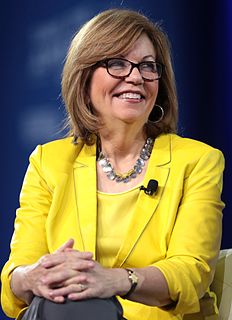A Quote by Eric Liu
A basic assumption shapes most Americans’ mindset about labor: the belief that the death of unions isn’t my problem because I’m not in a union. That assumption is wrong. Even if you aren’t a member, your pay is influenced by the strength or weakness of organized labor. The presence of unions sets off a wage race to the top. Their absence sets off a race to the bottom.
Related Quotes
Labor unions have a long history of benefitting all workers, even those who are not members of unions, because everyone's wages go up. If we don't increase membership - and membership in labor unions is going down because of the attacks against organized labor - it's something every single American, whether they're officially in a union or not, should be concerned about. It's a spiral. It's a weakening of the middle class and our economy can't sustain that.
When the press writes scare stories about the global labor supply draining jobs from rich to poor places, the story is usually presented as a "race to the bottom" simply in terms of wages. Capitalism supposedly looks for labor wherever labor is cheapest. This story is half wrong. A kind of cultural selection is also at work, so that jobs leave high-wage countries like the United States and Germany, but migrate to low-wage economies with skilled, sometimes overqualified workers.
You know, when I was in college, there was a big debate: Do unions raise wages? Well, with regard to industrial unions, there were arguments back and forth -- international competition. It is now clear, I think, that whether or not you think unions raised wages 50 years ago, the absence of unions and their weakness that is inflicted by anti-union public policy depresses wages. The fact is that people who are not represented, in the service industries in particular, are the victims of policies which depress their wages.
Historically, labor unions arose when people had gotten a taste of a different lifestyle and were willing to pay a lot more for their basic livelihood and had gotten into a fix they couldn't get out of - because they had accepted the unacceptable to begin with. Accepting something you have to form a labor union to fight after the fact only tells me that people were acting against their own best (or even good) interests for a long time. I don't see any rational, coherent explanation for this sort of behavior in humans, but it's all over the place.
Labor, being itself a commodity, is measured as such by the labor time needed to produce the labor-commodity. And what is needed to produce this labor-commodity? Just enough labor time to produce the objects indispensable to the constant maintenance of labor, that is, to keep the worker alive and in a condition to propagate his race. The natural price of labor is no other than the wage minimum.
Since it is to the advantage of the wage-payer to pay as little as possible, even well-paid labor will have no more than what is regarded in a particular society as the reasonable level of subsistence. The lower ranks of labor will commonly have less, and if public relief were afforded even up to the wage-level of the lowest ranks of labor, that relief would compete in the labor market; check or dry up the supply of wage-labor. It would tend to render the performance of work by the wage-earner redundant.
Labor union members, especially white men, are the target group for Donald Trump. He's had a lot of success in getting their support. So, it's not at all clear that labor unions will be able to do as much as they once could to get their members to actually vote for the candidate the union itself supports.
There's an ethic that says: 'You don't run off to the church for the sacraments of salvation, you establish a personal relationship with God. You don't run off to the courts for justice, you settle it yourself. You don't run off to labor unions to sort out your work relations, you can take this job and shove it if you don't like what you're doing.
Strong, responsible unions are essential to industrial fair play. Without them the labor bargain is wholly one-sided. The parties to the labor contract must be nearly equal in strength if justice is to be worked out, and this means that the workers must be organized and that their organizations must be recognized by employers as a condition precedent to industrial peace.
Although it is true that only about 20 percent of American workers are in unions, that 20 percent sets the standards across the board in salaries, benefits and working conditions. If you are making a decent salary in a non-union company, you owe that to the unions. One thing that corporations do not do is give out money out of the goodness of their hearts.
I believe if an individual wants to join organized labor and work under a union contract, they should have the legal right to do so. At the same token, a person who does not want to work under organized labor and wants to work should have the ability to do so without the threat of having to join and having to pay dues to organized labor.






































